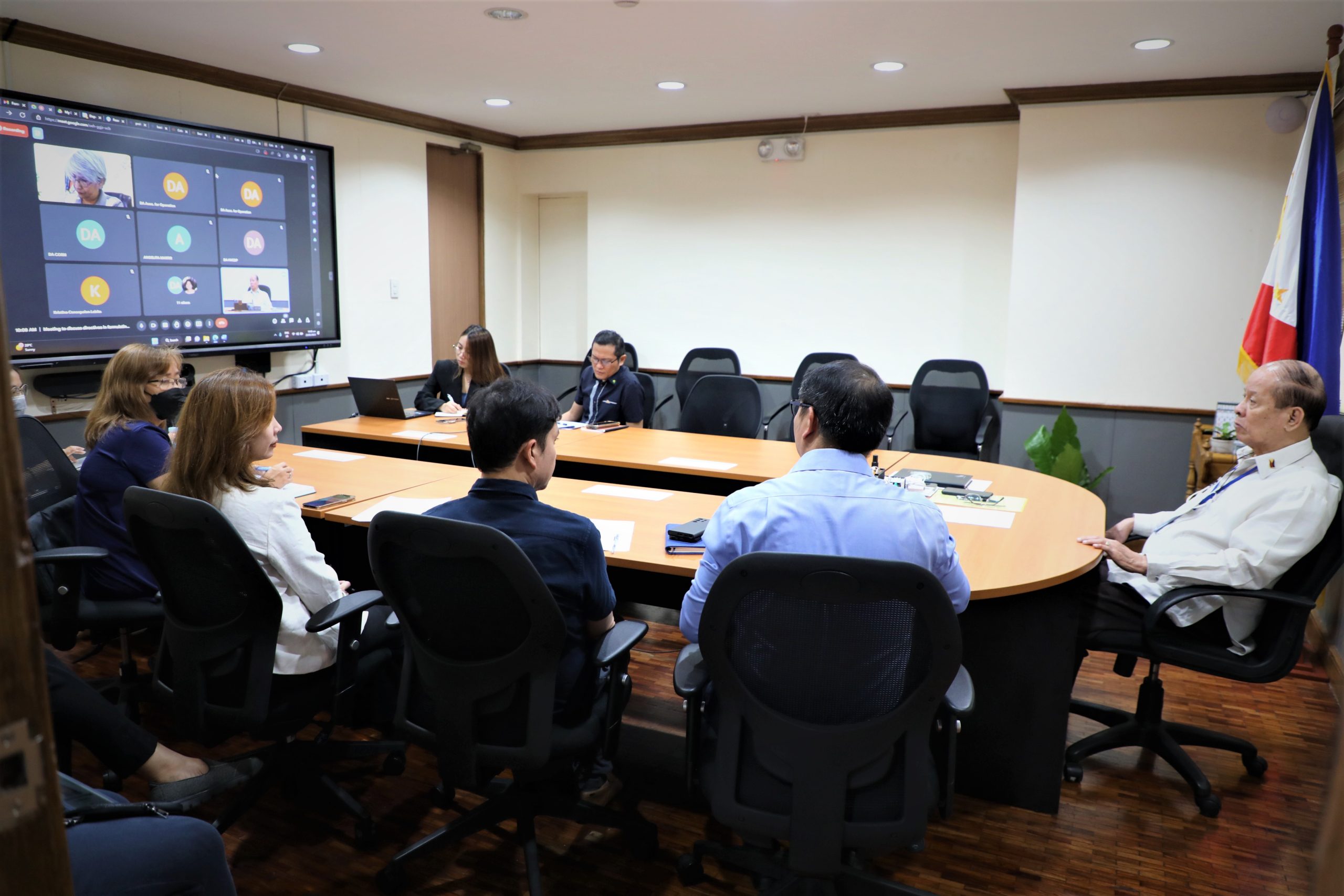
Following the directives of President Ferdinand R. Marcos Jr., officials of the Department of Agriculture (DA) led by Senior Undersecretary Domingo F. Panganiban convened to prepare for the formulation and updating of the agency’s three-year Agriculture Development Program, February 23.
Spanning from 2023 to 2025, the Program aims to promote agricultural productivity in the Philippines, with emphasis on rice, corn, high-value crops, livestock, poultry, and fisheries as priority commodities under the current administration.
Assistant Secretary for Operations Arnel V. De Mesa explained that aside from production, it will also cover other activities such as postharvest and processing, logistics improvement, market linkages and arrangements, and research and development.
With the President’s goal of achieving rice self-sufficiency by 2025, the DA – National Rice Program was instructed to determine specific areas for inbred and hybrid rice production and to formulate strategies for developing newly irrigated areas.
Intensified corn production will also be given focus in the Agricultural Development Plan, with the DA – National Corn Program directed to determine production areas for genetically modified and open-pollinated varieties. Dr. Candido Damo revealed that the Program aims an increase of 1.5 million metric tons in the production volume of corn by utilizing about 700,000 hectares of land through double cropping.
Asked to identify high-value crops for local consumption and export, DA – Bureau of Plant Industry (BPI) Assistant Director Herminigilda A. Gabertan revealed that they have been coordinating with the DA – High Value Crops Development Program (HVCDP) for the intensified production and export of Philippine okra or ladies’ fingers, shallots, bananas, mangoes, pineapples, durian, calamansi, jackfruits, avocados, dragonfruit, coffee, cacao, ube, pili nuts, cashew, bamboo, and ornamentals.
Also informed of its task to evaluate and enhance the country’s livestock and poultry production, DA – National Livestock Program (NLP) Director Ruth S. Miclat-Sonaco assured continuous implementation of repopulation and biosecurity initiatives against the African Swine Fever (ASF), Avian Influenza (AI), and other transboundary animal pests and diseases.
The DA – Bureau of Fisheries and Aquatic Resources (BFAR) was also called to enhance fisheries production in the Philippines by determining areas for aquaculture and capture fisheries.
Other instructions to the banner programs include coordination with the DA – Agricultural Credit Policy Council (ACPC) to formulate credit assistance and credit development programs that are complementary to the ACPC’s existing credit initiatives for Filipino farmers and fishers and collaboration with the DA – Bureau of Animal Industry (BAI) in identifying the needs and requirements of the animal feeds industry.
Senior Undersecretary Panganiban also advised the DA banner programs to review existing roadmaps and other related documents, conduct consultations with stakeholders, organize capacity-building activities for identified farmers’ cooperatives and associations (FCAs), promote clustering and consolidation among farmers and fisherfolk for better access to government interventions, and synergize with other concerned DA units for the drafting of a harmonious Agriculture Development Plan. ### (Krystelle Ymari A. Vergara, DA-AFID)













